- Home
- Aimée Thurlo
Second Sunrise
Second Sunrise Read online
Second Sunrise
ALSO BY AIMÉE & DAVID THURLO
Black Mesa
Second Shadow
Spirit Warrior
Timewalker
ELLA CLAH NOVELS
Blackening Song
Death Walker
Bad Medicine
Enemy Way
Shooting Chant
Red Mesa
Changing Woman
Second Sunrise
A LEE NEZ NOVEL
DAVID & AIMÉE THURLO
The author and publisher have provided this e-book to you without Digital Rights Management software (DRM) applied so that you can enjoy reading it on your personal devices. This e-book is for your personal use only. You may not print or post this e-book, or make this e-book publicly available in any way. You may not copy, reproduce or upload this e-book, other than to read it on one of your personal devices.
Copyright infringement is against the law. If you believe the copy of this e-book you are reading infringes on the author’s copyright, please notify the publisher at: us.macmillanusa.com/piracy.
This is a work of fiction. All the characters and events portrayed in this novel are either fictitious or are used fictitiously.
SECOND SUNRISE: A LEE NEZ NOVEL
Copyright © 2002 by David and Aimée Thurlo All rights reserved, including the right to reproduce this book
or portions thereof in any form.
This book is printed on acid-free paper.
A Forge Book
Published by Tom Doherty Associates, LLC
175 Fifth Avenue
New York, NY 10010
www.tor.com
Forge® is a registered trademark of Tom Doherty Associates, LLC.
ISBN 0-765-30441-4
First Edition: November 2002
Printed in the United States of America 0 9 8 7 6 5 4 3 2 1
To Harry David Thurlo,
who began his World War II
service to our country handling
the bombs and shells stored at
Fort Wingate, New Mexico
CONTENTS
Acknowledgments
Chapter 1
Chapter 2
Chapter 3
Chapter 4
Chapter 5
Chapter 6
Chapter 7
Chapter 8
Chapter 9
Chapter 10
Chapter 11
Chapter 12
Chapter 13
Chapter 14
Chapter 15
Chapter 16
Chapter 17
Chapter 18
Chapter 19
Chapter 20
Chapter 21
Chapter 22
ACKNOWLEDGMENTS
Beginning with Bram Stoker, writers have been keeping the undead alive in our imaginations by adding their tales to the vampire legend. These stories, plus rumors of skinwalkers that reached the curious mind of a young man growing up on the Navajo Nation, inspired us in our creation of the Lee Nez novels.
CHAPTER 1
State Policeman Lee Nez shifted into high gear as his shiny black Chevy department cruiser topped the hill preceding Mesa Montañosa thirty-five miles east of Fort Wingate. The army had an ordnance storage facility there, beside the railroad tracks, where bombs and shells were kept in rows of bunkers.
As the war in Europe raged on, the enlistment of regular state police officers into the military had left many vacancies open and had given him the opportunity he’d dreamed of—an appointment as a state patrolman. Trained on the job, he was the first Navajo state policeman.
Of course, it didn’t hurt that his mother and father had connections in Albuquerque, where both taught at the Indian School. Lee knew that it was their association with the pueblo governors and politicians in Santa Fe that had made the difference.
Now Lee was training a newly appointed officer, Patrolman Benito Mondragon. Benny was tall and thin, nearly six feet four, a full four inches taller than Lee. Benny, a full year younger than Lee, had a wife and young son and was quiet on the job except when asking a question about work, or occasionally bragging about his boy. From what Lee could tell so far, Benny’s greatest asset was that he was a quick study.
It was a cool March evening, and the ground was drying out from a late-winter snowstorm. The worn, rutted narrow asphalt highway was dangerous to drive over forty-five in many stretches now, especially the closer one got to Fort Wingate, which had its share of large army convoys.
“Officer Nez?” Benny’s voice was a bit high-pitched, and Lee had advised him to lower it by an octave whenever possible when speaking to the public so he’d sound older and more experienced.
Lee glanced at the rookie. The cap with the shiny black bill was the same as his, but only served to make him appear even taller. His size and build were imposing, something that would serve the patrolman well when he was out on his own.
“Do you think we’re ever going to get the authority to stop drivers from going over the posted speed?”
“That all depends on the governor and the state legislature. Bight now, all we can do is report them to their local rationing board, which has the authority to keep them from getting any more gas ration cards.”
“But if the driver is related to the local head of the board, like that trading-post operator near Gallup, the whole thing falls apart,” Officer Mondragon replied.
“What I hate most is investigating cases like a local farmer who had his farm equipment’s gasoline siphoned off. You go into it knowing what happened. The gas got stolen so a black-marketeer could sell it, say, in Albuquerque.”
“My cousin’s neighbor discovered he can make more money selling gas than by planting corn or beans.”
The Chevy was running hot tonight. Lee could feel the heat coming through the thin fire wall. That always seemed to come with being low man on the totem pole—a phrase his bilagáana (white) sergeant used to remind Lee why he usually got the worst-maintained equipment.
He thought about the canvas water bag they carried on the front bumper. It provided radiator water almost as much as drinking water lately, and it wasn’t even the hot time of year yet.
“Always make sure your vehicle is in good shape and ready for emergencies before you go out onto the open road. In the winter, or during the rainy season where so many low spots are filled with water, it could mean your life,” Lee said.
Most state patrolmen were on their own, with backup maybe hours away. Telephones in the scattered communities blessed with phone service were their only method of communication. State police cruisers were going to be equipped with radios after the war, so the rumors went, but that could take another year.
Lee loved his job and the opportunity to get off the Reservation and mix with the bilagáanas and his pueblo brothers farther down the Rio Grande River. Navajos and Mexican-Americans were treated like second-class citizens in bilagáana areas, but with the war going on, local racial tensions had taken a backseat to other nationalities currently at the top of the hate list, like Krauts and Japs.
A police officer wearing the well-known charcoal black uniform with gray pockets and stripes down the pants, with a .45 Colt revolver on his hip, commanded respect. They were exceptions, of course. Drunk G.I.s on a weekend pass could become belligerent, but most locals, him included, usually gave them the benefit of the doubt, not wanting to appear unpatriotic.
Coming around a sharp curve in the road, Lee slowed to twenty-five.
“Deer-crossing area, right?” Benny asked.
Mule deer crossed here from the thick juniper and piñon forest down to the marsh along the arroyo bottom to his right, the north side of the narrow highway.
“Whoa!” Lee slammed on the brakes just in time as three does bounded down the hill onto the road. The last one darted to the side, narrowly missing the left fender of the cruiser.
“Navajo Ways tell us not to climb a hill or the deer will see us. I think he saw us.”
“Saw us? We almost had venison tonight.” Benny laughed.
“I’m just grateful I don’t have to explain the crumpled fender to Sergeant Burkholder, or worse, scrape meat on the hoof from the seat cushions while picking windshield glass from our foreheads.”
Glancing into his rearview mirror, though he knew heading into the curve that no vehicle had been close, Lee shifted down into low gear and picked up speed from the lugging engine.
“Damn bladder. I never should have had that second cup of coffee in Grants.” Benny moaned, stretching his legs in agony.
“Rookie,” Lee said, chuckling. He waited until he was on a straight and level stretch of highway again, then pulled over. He hadn’t wanted to be the first to complain, but the truth was, he had to go himself before he exploded.
“I’ll get a flashlight.” Benny grabbed the light from the glove compartment, then opened his door and left in a hurry.
Lee took a quick glance around before deciding to step outside. After hours spent staring through the twin cones from his headlights onto the empty road, his night vision was poor, and he waited for his eyes to adjust.
The road looked clear in both directions. Except for the railroad tracks a few miles to his right and one adobe farmhouse several miles back, this section of New Mexico was desolate, occupied only by a few head of cattle, mule deer, and rabbits.
Noting where Benny had gone by the beam of the flashlight, Lee climbed down the road embankment until he was behind a large juniper twenty feet away from the other officer. Nobody could see them from the road, even if they happened to come along at this late hour. It was nearly eleven-thirty, he knew by estimating their travel time from Grants.
When he was done relieving himself, Lee turned and climbed back up the slope to the cruiser where Benny was standing, waiting.
Suddenly there was a loud pop, and the screech of tires somewhere east, coming from the direction of Fort Wingate. Several more loud bangs could be heard, echoing down the low valley from the nearby mesas.
“What the hell was that?” Benny said, looking down the road.
“Gunfire,” Lee said, jumping back inside the cruiser. “Hurry up. Let’s go.” As Benny climbed inside, Lee heard the rattle of automatic weapons fire.
“Hijacking?” Benny asked, his voice higher than before.
Lee shrugged. “Maybe it’s black-market hoods. I wish we had a two-way radio or a telephone nearby.”
Now that Prohibition had been repealed, Lee had heard that some of the gangsters had taken to stealing government supplies. Instead of selling booze, they stole gasoline and anything else that could turn a profit. But they wouldn’t dare hijack an army truck this close to a military post, would they?
As he drove down the highway, Lee decided against using the emergency lights and siren. “We’re going for a silent approach because we need an advantage, and I’m keeping our headlights off so we’ll keep our night vision. Take your extra ammunition out of your belt loops and put it in your pocket where it’ll be handy.”
Rolling down the window, Lee drove as fast as he dared, listening for the sounds of gunshots, trying to gauge their distance. They were much louder now, and more than one automatic weapon was being used.
Mentally adding up their combat potential, Lee knew he and Officer Mondragon each had twenty-four rounds for the Colt New Service revolvers, and there were another sixteen rounds in a bandoleer for the twelve-gauge shotgun under the seat.
He’d give Benny the shotgun, and stick to his own unofficial .30-30 Winchester lever action that he kept rolled up in a blanket in the trunk. He was a crack shot, and that would help their odds.
What Lee feared most was that by the time they arrived, only the bad guys would still be standing.
Lee knew they were close when he heard shouts as clearly as the bursts of gunfire. Lee had been in a gunfight before, but it was with a drunk miner who’d just shot his wife and her boyfriend. The sum total of Benny’s on-duty experience with violence was being roughed up in a bar melee his first week on the job.
Lee killed the engine, put the car out of gear, and coasted to a narrow cut in the road flanked by high ground covered with junipers.
Lee held up his hand, signaling the rookie to remain quiet. The shooting had stopped for the moment and stealth would be their greatest asset. Both of them checked their jacket pockets again for extra pistol rounds and the rookie hooked a flashlight into his Sam Browne belt.
Lee reached down to the floorboard and unfastened the shotgun and its belt of extra rounds, being careful not to bump the barrel and make a metallic clank, then handed it to Benny butt end first. Then, coordinating the opening of their doors, they slipped out in unison.
Lee moved quickly to the rear of the Chevy, unlocked the trunk, and lifted out the blanket containing his rifle and ammunition. He unwrapped the blanket quickly, catching the hammer on the cloth for a moment in his haste.
“Ch’i’idii!” he muttered, and Benny laughed silently, though Lee could see he was shaking like a leaf.
Suddenly there was a flurry of shots just over the crest of the hill, followed by shouts. The words had sounded like German, but he couldn’t be sure. Lee suddenly remembered a recent briefing by his captain. The state police had been warned that some kind of top-secret military operation was going on northwest of Santa Fe. This operation was so big that convoys would just disappear into the mountains. The entire area was off-limits and under constant military patrols.
“Germans?” Benny mouthed.
Lee shook his head, dismissing the notion of German spies as a movie plot from the matinee at Albuquerque’s Kimo theater. He lowered the trunk lid, but didn’t risk the noise of closing it. Then Lee motioned for Benny to follow as he moved into the tree line to his right. His heart was pounding so loud Lee felt as if it could be heard a mile away.
Benny, ten feet behind him, stepped on a branch and it crackled loudly. Lee froze, turned around, and scowled at the rookie. Benny mouthed a silent “Sorry,” then fell into step behind Lee once more.
Just before reaching the crest of the low hill, Lee lowered himself slowly to the ground and crawled on his belly the last several feet.
He turned halfway and signaled for Benny, who was also prone, to hold his position.
A yellow flare was lying on the road, burning brightly enough to reveal what lay below. On the highway, blocking the entire road, was an overturned flatbed truck, its cargo of firewood scattered around like a giant box of kitchen matches. An olive-drab Jeep, probably the lead vehicle in the small convoy, had its canvas overhead cover riddled with bullets, and was skewed sideways among the firewood. The driver wasn’t moving, and Lee could see a dark, bloody splotch below his throat.
The second vehicle in the column was a Dodge weapons carrier. Its windshield was riddled with bullet holes. About ten feet away was a General Motors deuce and a half cargo truck.
A second Jeep, closest to Lee, was on its side in the ditch, the body of a soldier pinned underneath. Another German-sounding word was shouted from somewhere across the road. Lee spotted a tall, lean man with a cap standing beside the trunk of a juniper, aiming a bolt-action hunting rifle at someone below.
The rifleman fired a shot at the weapons carrier and Lee saw someone move inside the rear of the vehicle. A pistol appeared and two shots were fired in rapid succession toward the tree line.
At least one of the soldiers was still alive, but seeing the man wearing the cap reloading, Lee brought up his rifle.
As Lee placed the rifleman’s head in his sights, he heard a low scraping sound, and turned his head to look. Benny had worked his way up to the crest of the hill.
Lee looked back, and saw the rifleman looking r
ight at them. Benny fired. The double-aught buckshot struck the tree beside the German and bark exploded from the trunk.
Lee snapped off a quick shot, but the German was already moving and he missed. Lee rolled to his left, glancing over at his trainee. Benny rose up slightly to feed another round into the shotgun, and an ugly hole appeared just beside his nose. He trembled slightly for a second, then his head dropped, the shotgun tumbling down the slope.
“Benny!” Lee fired three rounds as quickly as he could, aiming instinctively at the rifleman, who was crouched down, apparently trying to clear a jammed cartridge. The rifleman’s head quivered as at least one bullet struck him squarely, and he crumpled forward onto his face, dropping the rifle.
“Yeehaw! Got that bastard,” a soldier in the weapons carrier yelled in a West Texas accent. He poked his head out from behind cover and fired a burst from a submachine gun at a spot just to the right of the overturned Jeep.
Lee heard a man groan, then saw a body fall onto the highway. The rifle the wounded man was holding clattered onto the gravel beside the road.
Lee crawled a few more feet and glanced at what was left of his partner. Benny had died instantly, at least that was a blessing. Sudden anger for the ones who’d done this left a bitter taste in his mouth. Benny’s boy would grow up without his father.
At that instant, he heard footsteps behind him, and he rolled right. A bullet impacted six inches from his head, cutting his face with sand and shattered rock. Rolling back to his left, he drew his Colt and fired twice at the figure, who was feeding another round into his lever-action weapon.
The man dropped forward, striking the ground right at Lee’s feet.
Rolling back to his right, Lee picked up his rifle, jammed his Colt back into the holster, and sprinted to some boulders about fifteen yards away. There was good cover there on three sides.
As Lee drew close, he discovered the spot was already occupied. A man whirled just as Lee raised his rifle, and fired a shotgun blast at the same time Lee pulled the trigger.

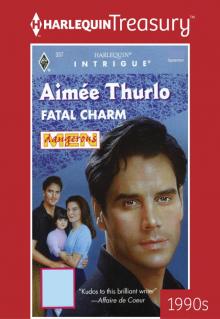 Fatal Charm
Fatal Charm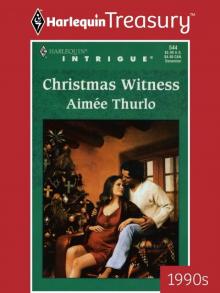 Christmas Witness
Christmas Witness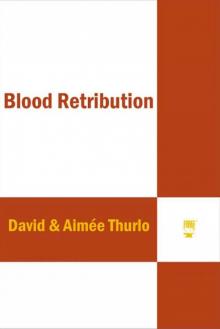 Blood Retribution
Blood Retribution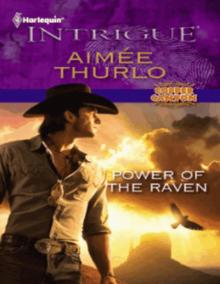 Power of the Raven
Power of the Raven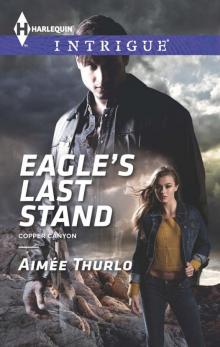 Eagle's Last Stand
Eagle's Last Stand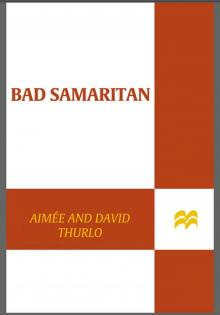 Bad Samaritan
Bad Samaritan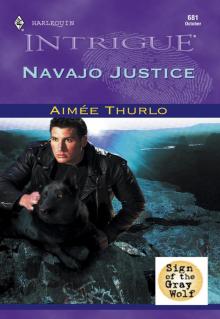 Navajo Justice
Navajo Justice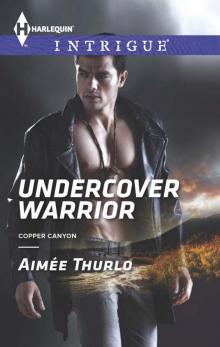 Undercover Warrior
Undercover Warrior Wind Spirit: An Ella Clah Novel (Ella Clah Novels)
Wind Spirit: An Ella Clah Novel (Ella Clah Novels)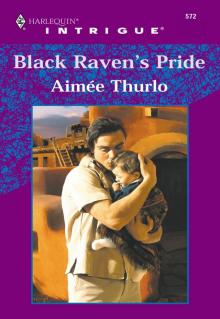 Black Raven's Pride
Black Raven's Pride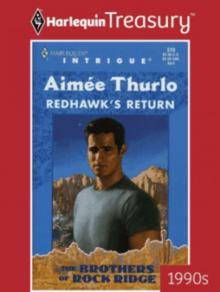 Redhawk's Return
Redhawk's Return Second Sunrise
Second Sunrise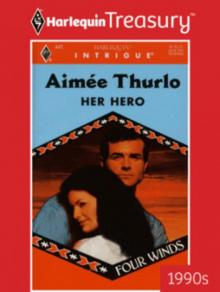 Her Hero
Her Hero The Prodigal Nun
The Prodigal Nun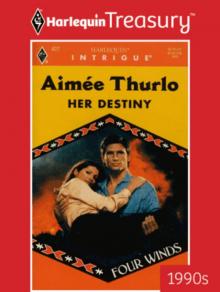 Her Destiny
Her Destiny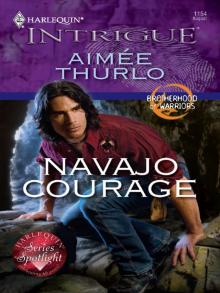 Navajo Courage
Navajo Courage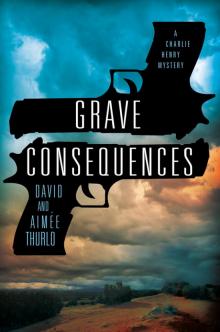 Grave Consequences
Grave Consequences Homespun Christmas
Homespun Christmas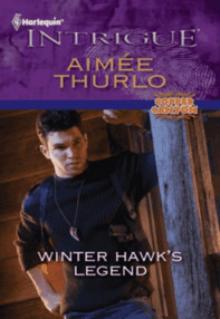 Winter Hawk's Legend
Winter Hawk's Legend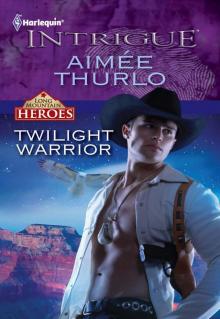 Twilight Warrior
Twilight Warrior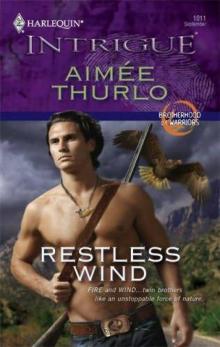 Restless Wind
Restless Wind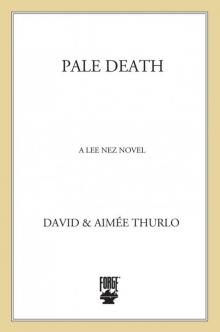 Pale Death
Pale Death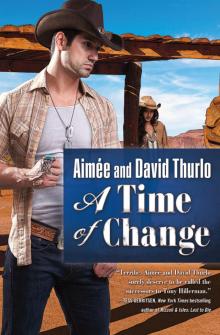 A Time of Change
A Time of Change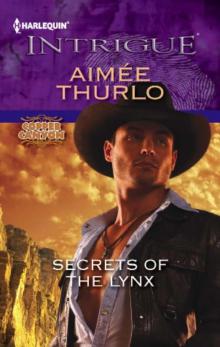 Secrets of the Lynx
Secrets of the Lynx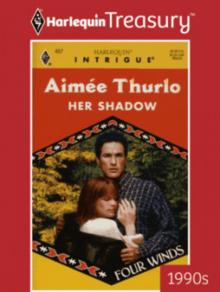 Her Shadow
Her Shadow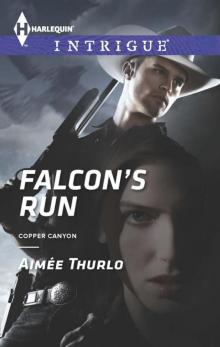 Falcon's Run
Falcon's Run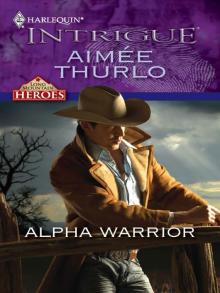 Alpha Warrior
Alpha Warrior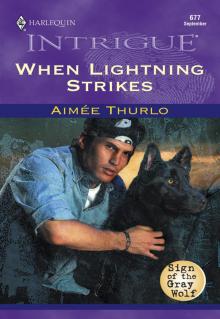 When Lightning Strikes
When Lightning Strikes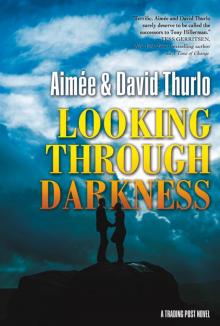 Looking Through Darkness
Looking Through Darkness